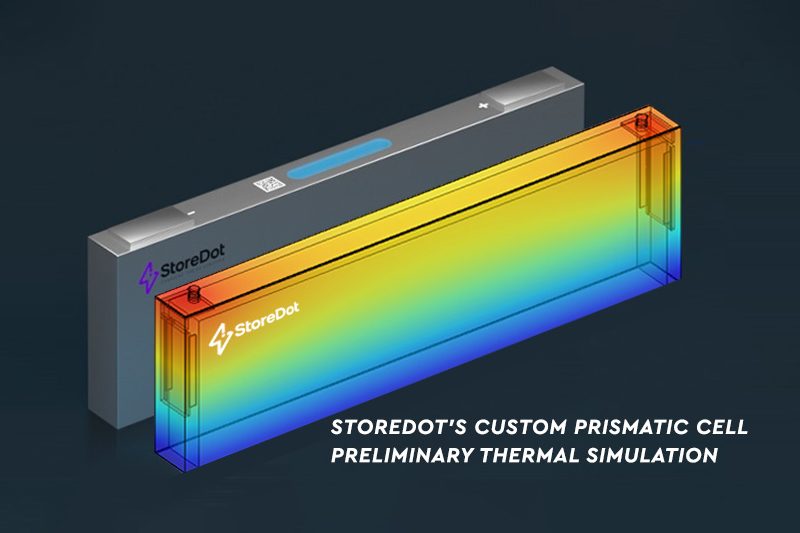StoreDot announces progress with prismatic XFC battery cells
StoreDot has announced that its prismatic battery cell can be charged from 10 to 80 per cent within ten minutes “without compromising on service life and range,” as it says. The Israeli battery developer assembled its first-ever prismatic cells at the end of January. In StoreDot’s view, this cell type offers additional mechanical protection and performance advantages over pouch cells.
In order not to leave out this large target group, the company is now working intensively on transferring its silicon-dominated battery technology into prismatic cells. As part of an ongoing production cooperation with the automotive supplier Flex-N-Gate, StoreDot has now been able to prove that “its XFC battery technology is production-ready at a scale to satisfy global demand.”
According to StoreDot, the sample cells tested had a capacity of 80 Ah and demonstrated the ability to charge from 10 to 80 per cent within ten minutes without overheating. According to the partners, this now paves the way for the development of 160 Ah cells that meet customer requirements.
Amir Tirosh, COO of StoreDot, emphasised: “This milestone not only demonstrates our ability to work closely with EV OEMs to customize the XFC technology to their specific format, it also showcases the success of our partnership with Flex|N|Gate in scaling up our prismatic cells. Together, we’ve taken a giant leap forward in EV battery innovation, offering OEMs our game-changing XFC technology in the prismatic format many prefer.”
In April, a prototype of the Polestar 5 with StoreDot cells was charged to 80 per cent in ten minutes for demonstration purposes. The Israeli battery specialist has been working on so-called silicon-dominated cells for years. Their energy density should be “comparable to that of the latest NMC cells” and enable batteries with energy density of up to 100 kWh. The high charging capacity cannot only be achieved with special chargers – the technology already installed today in the form of 350 kW charging stations should be sufficient.
The next step is to supply prismatic B-samples to OEMs and expand StoreDot’s business activities in the USA. The company’s partners include Mercedes-Benz, Volvo Cars, VinFast and Polestar. In January 2023, StoreDot announced that its battery cells were being tested under real-life conditions by 15 car brands from Europe, Asia and the USA. As reported, StoreDot cells will also be produced on these three continents in existing and future battery factories of automotive partners. StoreDot itself is not planning its own production facilities. According to the company, this approach guarantees customers improved delivery times.





0 Comments